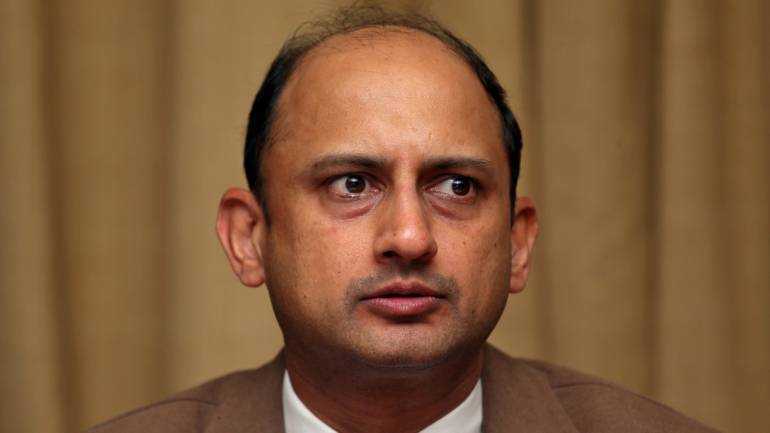Soon after RBI Governor Urjit Patel announced his decision to quit, social media channels were rife with speculation that Viral Acharya too had quit.
A Reserve Bank of India spokesperson on December 12 clarified that Viral Acharya has not quit his position as deputy governor of the central bank.
“Viral Acharya has not resigned as Deputy Governor of RBI and does not intend to resign either,” the spokesperson told CNBC-TV18.
Soon after RBI Governor Urjit Patel announced his decision to quit, social media channels were rife with speculation that Viral Acharya too had quit.
Lending credence to the chatter was the fact that it was Viral Acharya’s comments in late October which brought into open the simmering differences between the government and the central bank.
In his speech at the AD Shroff Memorial Lecture in Mumbai, Acharya had raised concerns over the independence of RBI called for the central bank's autonomy to ensure long-term financial stability in the country. His remarks were seen as a clear signal to the government that it needed to back off and let the RBI do its job.
Excerpt from the speech:
“Although the central bank is formally organised to be separate from the government, its effective horizon of decision-making can be reduced for short-term gains by the government, if it so desires, through a variety of mechanisms, inter alia:- Appointing government (or government-affiliated) officials rather than technocrats to key central bank positions, such as Governor, and more generally, senior management;
- Pursuing steady attrition and erosion of statutory powers of the central bank through piece-meal legislative amendments that directly or indirectly eats at the separation of the central bank from the government;
- Blocking or opposing rule-based central banking policies, and favoring instead discretionary or joint decision-making with direct government interventions; and,
- Setting up parallel regulatory agencies with weaker statutory powers and/or encouraging the development of unregulated (or lightly regulated) entities that perform financial intermediation functions outside the purview of the central bank
If such efforts are successful, they induce policy myopia in the economy that substitutes macroeconomic stability with punctuated arrival of financial crises.
Therefore, there are several reasons why enshrining and maintaining central bank independence ends up being an inclusive reform for the economy; and conversely, undermining such independence a regressive, extractive one”
A few days later, there were reports that the government had written to the RBI hinting it may invoke Section 7 of the Reserve Bank of India Act, to get the central bank to issue directions on relaxing prompt corrective action (PCA) norms, liquidity to non-banking financial companies (NBFCs), among others.
Section 7 of the RBI Act, when invoked, allows the government to consult with and give instructions to the Governor of the RBI on certain issues that it believes are serious and are in public interest.
In case the government does issue any such directions, the business and functions of the RBI will be entrusted to a Central Board of Directors that can exercise all powers and perform all functions of the central bank.















